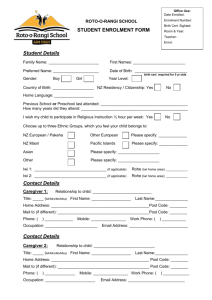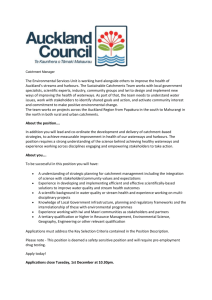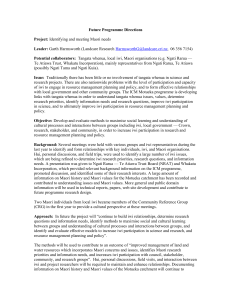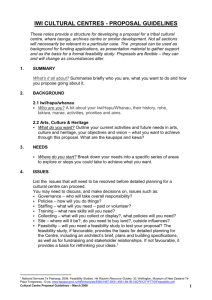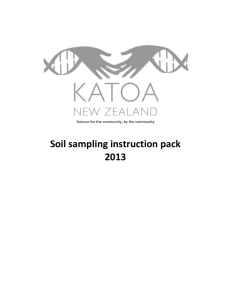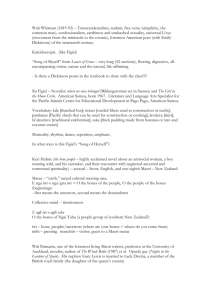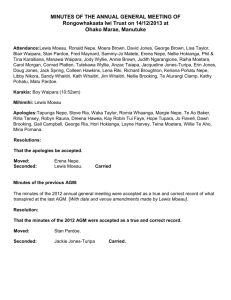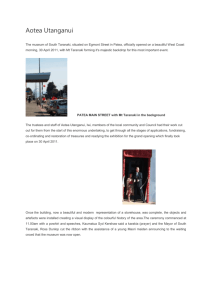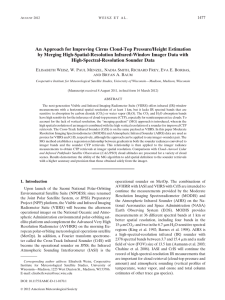Identifying and meeting Maori needs- current
advertisement
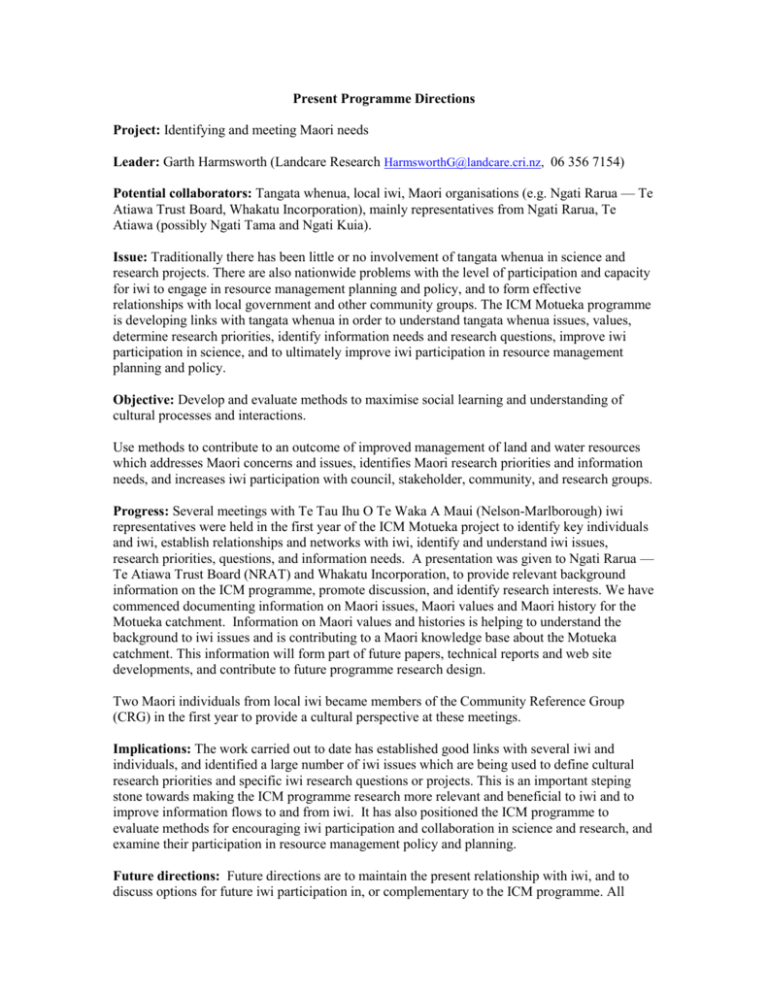
Present Programme Directions Project: Identifying and meeting Maori needs Leader: Garth Harmsworth (Landcare Research HarmsworthG@landcare.cri.nz, 06 356 7154) Potential collaborators: Tangata whenua, local iwi, Maori organisations (e.g. Ngati Rarua — Te Atiawa Trust Board, Whakatu Incorporation), mainly representatives from Ngati Rarua, Te Atiawa (possibly Ngati Tama and Ngati Kuia). Issue: Traditionally there has been little or no involvement of tangata whenua in science and research projects. There are also nationwide problems with the level of participation and capacity for iwi to engage in resource management planning and policy, and to form effective relationships with local government and other community groups. The ICM Motueka programme is developing links with tangata whenua in order to understand tangata whenua issues, values, determine research priorities, identify information needs and research questions, improve iwi participation in science, and to ultimately improve iwi participation in resource management planning and policy. Objective: Develop and evaluate methods to maximise social learning and understanding of cultural processes and interactions. Use methods to contribute to an outcome of improved management of land and water resources which addresses Maori concerns and issues, identifies Maori research priorities and information needs, and increases iwi participation with council, stakeholder, community, and research groups. Progress: Several meetings with Te Tau Ihu O Te Waka A Maui (Nelson-Marlborough) iwi representatives were held in the first year of the ICM Motueka project to identify key individuals and iwi, establish relationships and networks with iwi, identify and understand iwi issues, research priorities, questions, and information needs. A presentation was given to Ngati Rarua — Te Atiawa Trust Board (NRAT) and Whakatu Incorporation, to provide relevant background information on the ICM programme, promote discussion, and identify research interests. We have commenced documenting information on Maori issues, Maori values and Maori history for the Motueka catchment. Information on Maori values and histories is helping to understand the background to iwi issues and is contributing to a Maori knowledge base about the Motueka catchment. This information will form part of future papers, technical reports and web site developments, and contribute to future programme research design. Two Maori individuals from local iwi became members of the Community Reference Group (CRG) in the first year to provide a cultural perspective at these meetings. Implications: The work carried out to date has established good links with several iwi and individuals, and identified a large number of iwi issues which are being used to define cultural research priorities and specific iwi research questions or projects. This is an important steping stone towards making the ICM programme research more relevant and beneficial to iwi and to improve information flows to and from iwi. It has also positioned the ICM programme to evaluate methods for encouraging iwi participation and collaboration in science and research, and examine their participation in resource management policy and planning. Future directions: Future directions are to maintain the present relationship with iwi, and to discuss options for future iwi participation in, or complementary to the ICM programme. All options build on iwi issues and target cultural research priorities and information needs. We are pursuing three main options: The first is to identify iwi issues and research priorities to make the ICM programme research more relevant to iwi. It will be important to identify the information needs of iwi, determine research questions, acceptable systems for knowledge management, and appropriate methods for effective two way information flows between iwi and the ICM researchers and other groups. The second option is to discuss with iwi the possibility of a joint project involving iwi researchers to work alongside present ICM programme researchers in relevant parts of the programme. The third option is to discuss with iwi the development of an iwi specific project, which may require extra or external funding, led by iwi, which would complement the existing ICM programme work.
